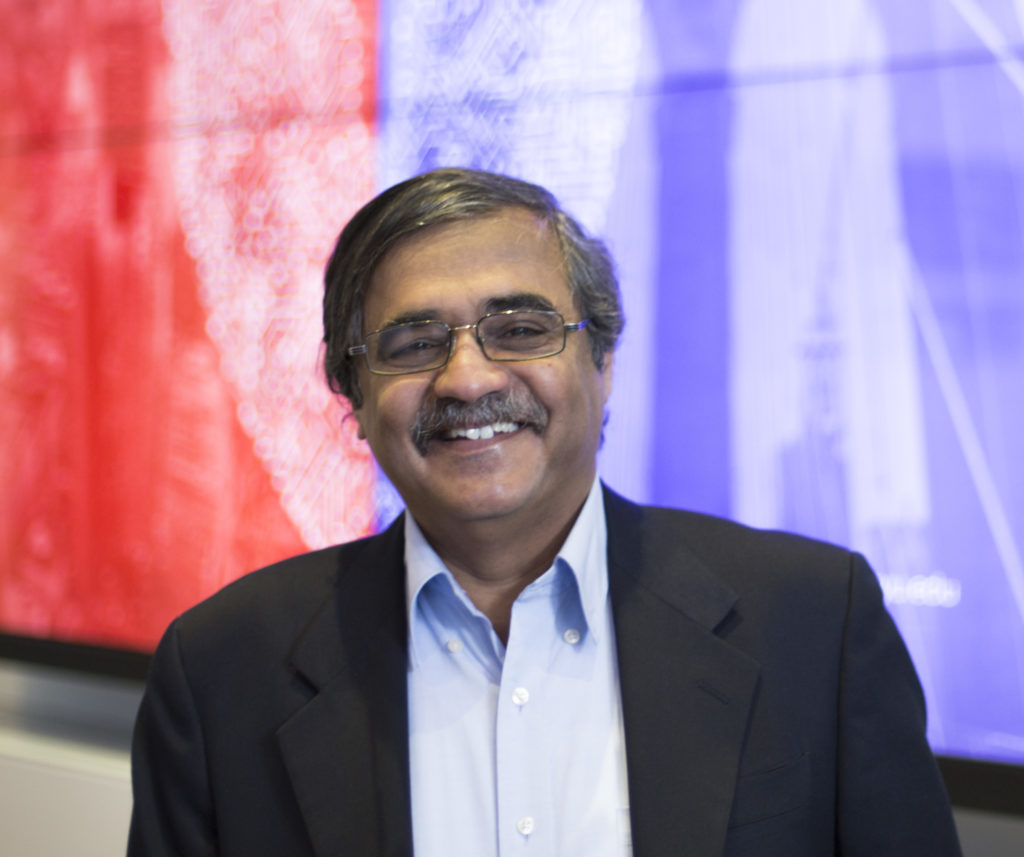“A hacker is someone who is very curious by nature and loves to just dig his or her hands into something and find a little point somewhere that breaks the whole thing down,” says Nasir Memon, a Brooklyn-based computer-science professor who has embraced the hacker ethos throughout his academic and professional career.
Memon teaches at the NYU Tandon School of Engineering, which is making an assertive push into the field of cybersecurity, most recently by creating a new masters-degree program. In our podcast, Memon acknowledges that in his early days in computer science, he didn’t realize that his hacking instincts would play into a booming field. “I don’t know if I saw it all coming. I didn’t know it was going to be such a big issue,” he says. But teaching cybersecurity proved to be a gratifying experience, and Memon would go on to co-found NYU’s Center for Cybersecurity and launch Cyber Security Awareness Week, an annual student-led conference. “Security turned out to be a subject that I taught where students engaged very eagerly and easily.”
Memon started learning computer science without computers, writing programs in machine language on pen and paper and handing them in. He went on to earn engineering and math degrees at Birla Institue of Technology and Science in the Indian state of Rajasthan, then completed his PhD in computer science at the University of Nebraska.
Memon began his career in the private sector, working to develop and sell technology to clients including the Defense Department, but eventually found his calling in academia. “I never thought I would be a professor. In fact, if some of my professors find out that I was one, they would probably have a heart attack. I was a very bad student at undergrad,” he says. Even so, his teachers made an enduring impression. “I was inspired by my professors and that is what led me to do this.”
In his own experience as a teacher, Memon discovered that his students craved hands-on experience. “They wanted to actually do things, build things, break things,” he says. This led him to re-think the academic experience. “Our current education system is more fashioned after the industrial revolution, assembly line model that served well to scale education in the 19th century. But today, with technology, that suddenly is not the most efficient way of doing things. Once you digitize a lecture, the student can traverse it in any order, with more flexibility in terms of time.”
Memon wants to see education become more of an equal-opportunity enterprise, starting with high school. If he could, Memon says, “I would make high school teachers the highest paid job in the world.” In his own career, Memon says he wants to “create quality learning experiences that are affordable and that are open to all.” In academia, he says, “we have these gateways that we don’t let people in unless they have a specific qualification.”
Memon is enthused not only about the future of his chosen subject, but the place where he’s teaching it: Brooklyn. “Things are moving at a fantastic pace, and there is an energy and there is excitement and new companies coming here. I am very optimistic that in a few years Brooklyn will be known as one of the leading technology hubs in the country.” –By Kora Feder
Podcast: Play in new window | Download
Subscribe: Apple Podcasts | RSS
